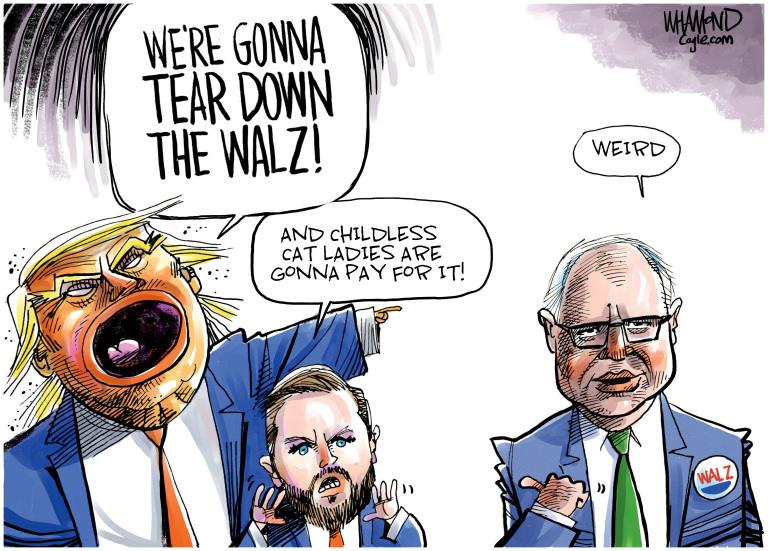
A question on the minds of many a supporter of Kamala Harris’s presidential bid is the extent to which Trump will be able to effectively attack her new running mate, Gov. Tim Walz of Minnesota, as a radical leftist.
With all the appropriate qualifiers about how Harris is the one at the top of the ticket and vice presidential nominees don’t move that much vote, Democrats are still hoping that Walz can help to balance concerns voters might have about Harris’s perceived vulnerability of being too liberal.
Put simply, Harris and her campaign team are hoping that Walz’s image, his Midwestern-nice, gun-toting, football coaching, military serving, dad-energy personae will make enough people, particularly older white men in the middle of the country, comfortable enough with the Harris-Walz option to vote for it and thus eat into the majorities this cohort will surely deliver for Trump. And make no mistake, this calculation is about losing this bloc of voters by less and not outright winning it.
Republicans are hoping they can point to a bunch of policy decisions and actions by Walz that make it easy to tar him as a radical. They say he is on board with much of Harris’s liberal agenda with issues such as expanding benefits like paid family leave, protecting abortion rights, and restricting guns. They ramble on about his policy of free tampons in school bathrooms as a way to accommodate transgender students and voting rights for felons. They are particularly vocal about how he handled the civil unrest in the aftermath of the murder of George Floyd.
Democrats are hoping to emphasize something entirely different. As Lisa Lerer writes at the New York Times, “The Democratic strategy is based far more on the identity politics of race, gender and cultural affiliation than on any policy calculation.” It is, according to this argument, about who he is, or who he is perceived to be and not what he has done or supported through work and deed.
The argument is, however, more complicated.
My guess is that no matter how hard Trump and Vance try to suggest these positions he has taken and the things that he has done are the work of the devil, a large chunk of voters, even many white working class men, are going to see these as the kinds of positions one might take when trying to serve constituents as governor, when trying in good faith to get things done.
Maybe this is a hard sell in today’s political environment, but if you respect voters enough to tell them why you have done what you have done, they are not going to be overly fussed that they don’t agree with everything you have done.
The magic of someone like Walz, a guy who exudes integrity and decency, is that whatever policies Trump thinks are worthy of attack, it is precisely the way Walz presents himself, his identity, that makes him attractive to voters. In others words, it’s not who he is versus what he has done; it’s his ability, because of who he is, to talk to voters in a respectful way about why he did what he did, and what he thinks needs to happen next.
Trump doesn’t respect people who vote for him. And don’t forget Hillary Clinton’s major blunder of describing some who might vote against her as deplorables. Walz will not get a majority of white working class voters. But he is going to get some of them by being who he is, a guy who knows you can disagree with people and still respect them, and sometimes even vote for them.
Cross-posted from The Phantom Public blogRetired political staffer/civil servant. Dual U.S./Canadian citizen writing about politics and the arts on both sides of the border.
















